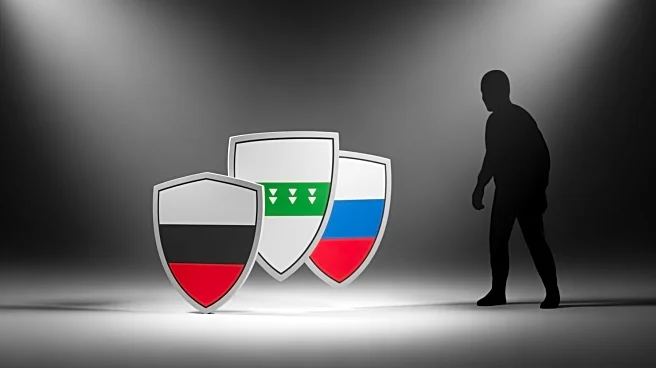What's Happening?
The Baltic states of Estonia and Latvia are taking steps to curb Russian influence over their Russian-speaking populations, amid heightened security concerns following Russia's invasion of Ukraine. Both
countries are phasing out the Russian language in education, tightening immigration rules, and targeting Russian-linked organizations. These measures are part of a broader strategy to integrate Russian-speaking minorities and reduce Moscow's sway. The move comes as Russian influence activities have intensified in the region, with efforts to sway public opinion and promote narratives about the decline of the West.
Why It's Important?
The actions taken by Estonia and Latvia reflect the broader geopolitical tensions in Eastern Europe and the need to safeguard national security. By reducing Russian influence, these countries aim to strengthen social cohesion and ensure that their populations are aligned with national interests. The measures also highlight the challenges faced by countries with significant Russian-speaking minorities, as they navigate the complexities of integration and security. The situation underscores the importance of addressing hybrid threats, including propaganda and disinformation, in maintaining regional stability.
Beyond the Headlines
The measures taken by the Baltic states have drawn criticism from Russia and some Western organizations, raising questions about the balance between security and minority rights. The situation also highlights the historical context of Russian influence in the region, dating back to Soviet-era policies. The efforts to integrate Russian-speaking minorities are part of a broader strategy to counter potential threats and ensure the resilience of democratic institutions. The situation serves as a reminder of the ongoing challenges faced by countries on NATO's eastern frontier in maintaining security and stability.








